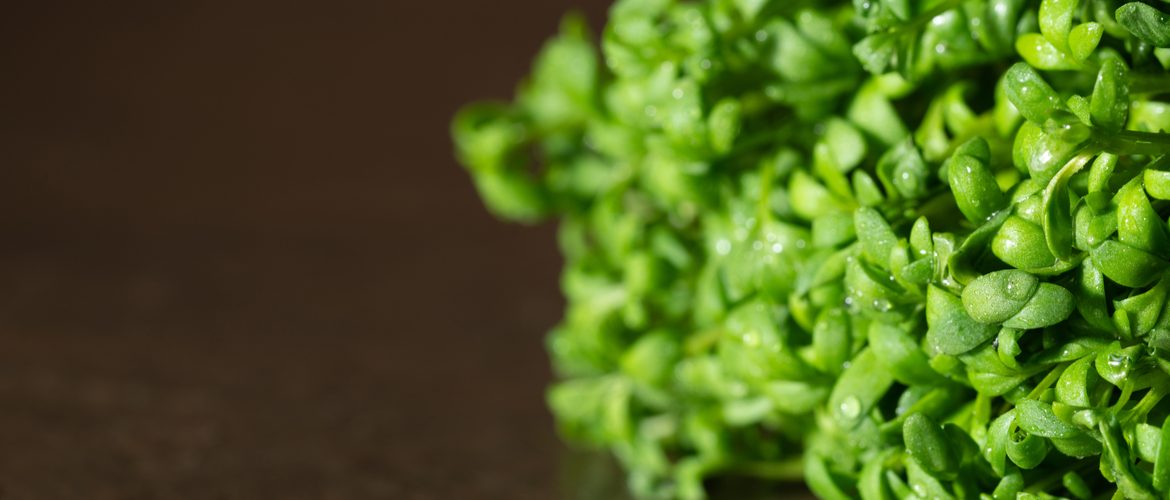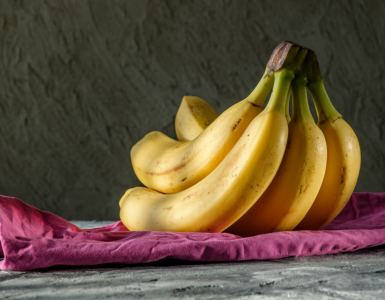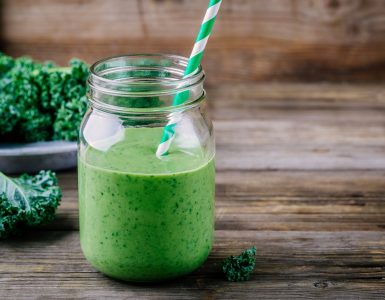By Sue Bedford (MSc Nutritional Therapy)
Watercress is an often overlooked leafy green that packs a powerful nutrient punch! Here nutritionist Sue Bedford tells us more!
It really does pack a punch and here’s why . . . t’s a member of the cruciferous vegetable family (along with kale, broccoli, cauliflower for example) and is rich in many nutrients including vitamin C, E and K, calcium, beta-carotene, iron and iodine.
Importantly too, for peri-menopause and menopause, watercress is a rich source of the vital B vitamin folate which is important in the production of serotonin.
Watercress is also a great source of vitamins C and E, magnesium (often known as the happy mineral) within watercress is good for balancing hormones and mood. Watercress is naturally low in fat. The little polyunsaturated fat it does contain has a high proportion of the essential fatty acid alpha-linolenic acid (ALA), part of the omega 3 fatty acid family, which is important for hormone balance and reducing inflammation during the peri menopause and menopause. There have been various studies conducted into different food groups and their effect on the menopause and its associated symptoms. In the results, the researchers found that in relation to the vegetable groups, higher consumption of leafy greens and cruciferous vegetables led to a significant reduction in overall menopausal symptoms and specifically in physical symptoms.
Some good reasons as to hoe consuming watercress may help with the menopause
- Helps balance oestrogen levels – compounds in cruciferous veg such as watercress, together with high levels of vitamin B6 and magnesium help to maintain a healthy oestrogen balance. Maintaining oestrogen levels may help to lessen the loss of sexual libido and vaginal dryness.
- Reduces mood swings – many women during the menopause transition report increased irritability and mood swings. Certain foods can help to stabilise moods, including watercress which can also help improve mental health. Green vegetables such as watercress, spinach and peas are high in folic acid, a member of the B-complex group, which is needed to make serotonin which helps stabilise moods.
- May help to protect against osteoporosis – to help maintain bone strength and prevent osteoporosis, menopausal women should increase their intake of two nutrients: calcium and vitamin D. Gram for gram watercress contains more calcium than milk and so is a fantastic way to add more in the diet. Adequate vitamin K consumption also improves bone health – watercress contains good levels of this vitamin K.
- Watercress may help to protect against memory loss – watercress contains high levels of folate which may act as a preventive against cognitive decline. In addition, a high concentration of vitamin C may play a role in neuron building activity and gram for gram watercress contains more Vitamin C than oranges.
So why not include more wonderful watercress into your daily diet? Here are the health benefits of watercress:
Watercress provides us with many other important health benefits too, including:
As a digestive aid – watercress contains a good amount of the pigment chlorophyll which is rich in digestive enzymes and so helps the body to use and absorb nutrients from food.
- A natural diuretic – it is rich in potassium. Potassium is important in the regulation of blood pressure.
- Fighting infections such as colds and flu (immune system support) – acts as a natural antibiotic.
- Helps to detoxify the skin – rich in sulphur which helps promote protein absorption- leading to healthy skin and hair.
- Linked in studies to potentially reducing the risk of certain cancers such as – bladder, rectum, colon, lung and breast cancer.
- Rich in the B vitamin complex – needed to make serotonin (a mood boosting chemical).
- High in vitamin K -important for blood clotting and bone strength and formation.
- Watercress is also a great source of vitamins C and E, which have been linked in studies with improving sperm count. Watercress has also been found in studies to help repair DNA damage.
- Anti-ageing: Watercress is rich in age defying antioxidants that may help to prevent or slow the oxidative stress induced by free radical damage.
Watercress can be grown throughout the year and it’s always a good idea to purchase organic watercress where possible to avoid pesticides and avoid potential contamination with harmful bacteria.
















